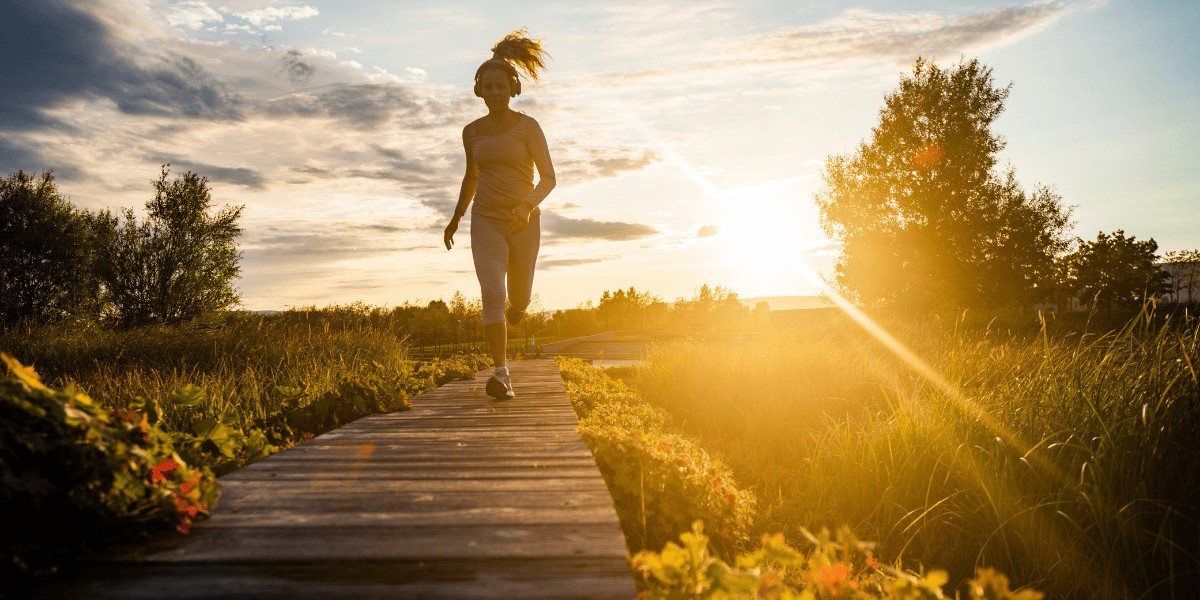From Winter Blues to Spring Renewal: The Lifestyle Effects of Changing Seasons
I always know spring is close when the light feels different—softer, maybe even braver. It’s not just the temperature climbing or the daylight lingering past 5 p.m.; it’s something in my bones. We don’t talk enough about how the seasons move through us, not just around us. The weather might shift outside our windows, but inside, we shift too—emotionally, mentally, biologically.
Seasons aren’t just scenery. They’re signals. They pull at our moods, tug at our routines, and sometimes even challenge our sense of identity. What we eat, how we sleep, the thoughts that echo in our heads—all of it subtly changes depending on whether it’s a cold January or a blossoming April.
In this article, we’ll explore what really happens to us as the seasons shift. From the emotional fog of winter to the energetic stirrings of spring, we’ll uncover how nature's calendar quietly rewrites our internal scripts—and how we can move with it instead of against it.
Winter Blues: When Everything Slows Down
I don’t think it’s just me—winter always feels heavier. There’s a stillness that borders on stagnant, a grayness that seeps beyond the sky and into the corners of our minds.
It’s not unusual. Seasonal Affective Disorder (SAD) impacts millions, and even those without clinical symptoms report feeling more lethargic or isolated during the colder months. Lack of sunlight suppresses serotonin and disrupts melatonin production. But beyond the biology, winter asks us to pause. To rest. To sit with the silence we often avoid.
We think productivity is a year-round virtue. But nature doesn’t bloom all twelve months, and maybe we aren’t meant to either.
The Arrival of Spring: A Biological Reawakening
Then spring comes in quietly, like an exhale you didn’t know you were holding. Suddenly, the morning light feels gentler. The urge to clean, plan, start again—it’s all instinctual. Even the animals know it’s time to begin again.
Our bodies respond to these cues in ways we might not consciously notice:
Increased serotonin: Longer days mean more sunlight, which helps regulate mood.
More movement: Warmer weather pulls us outdoors, nudging us toward exercise and nature.
Restored rhythms: With more daylight, sleep cycles recalibrate. We feel more aligned.
But beyond the chemical reactions, spring brings an emotional loosening. We begin to hope again. We allow ourselves to imagine, to plan, to feel light.
Autumn’s Wisdom: Letting Go and Looking Inward
While spring symbolizes beginnings, autumn teaches us the beauty of letting go.
As leaves fall, they remind us that shedding isn’t failure—it’s preparation. Autumn often sparks deep reflection. It’s a season for pulling inward, evaluating what’s no longer needed.
People often report increased creativity in fall.
Many embrace routines again after summer’s chaos.
It becomes easier to set intentions.
Autumn has a bittersweet energy. It’s both the end and the beginning of a cycle. And that duality shapes how we interact with ourselves and others.
See More: https://archaicpressmagazine.com/
Summer’s Surge: The Season of Expansion
Summer doesn’t ask for permission. It’s bold. Loud. Alive.
Longer days, more socialization, and outdoor events lead to higher dopamine activity. We’re energized by:
More physical activity
Vacation planning
Increased sunlight exposure
But summer also teaches us presence. It says: Live while it’s warm. It invites joy without guilt.
Still, for some, it brings pressure—body image anxiety, overstimulation, social burnout. Every season, even the brightest, carries its own shadows.
Nature's Cycle, Our Internal Clock
There’s something sacred in aligning your lifestyle with the seasons, not resisting them.
| Season | Emotional Impact | Lifestyle Shift | Symbolism |
|---|---|---|---|
| Winter | Reflective, low energy | Rest, introspection | Hibernation, stillness |
| Spring | Hopeful, creative | Reawakening, planning | Renewal, growth |
| Summer | Energized, social | Activity, connection | Expansion, joy |
| Autumn | Reflective, intentional | Releasing, grounding | Change, wisdom |
When you honor the rhythm of nature, you begin to see yourself as part of something ancient and meaningful. You stop pushing so hard in winter. You stop racing through spring. You start listening to your own cycles.
Real-Life Reflection: A Seasonal Piece That Inspired This
One of the most beautifully written takes on this subject I’ve come across lives at ArchaicPressMagazine.com. Their reflective article, How Do Changing Seasons Affect Our Lifestyle?, offers a deeper emotional lens—blending memory, science, and poetic storytelling into a piece that feels like a quiet conversation. I highly recommend reading it as a companion to this reflection.
It’s a perfect example of how we need more writing that honors the quiet power of transition.
Reclaiming Your Seasons
So what can you do to better align your life with the seasons?
Track your mood across the months. See if patterns emerge.
Create seasonal rituals. Spring walks, summer journaling, fall baking, winter reading.
Don’t fight the slowdowns. Rest is a form of respect.
Let nature be a mirror. If a tree isn’t blooming, maybe you don’t need to either.
Living seasonally isn’t just a lifestyle trend. It’s a return to rhythm. A way to remember that we’re not separate from nature—we’re a part of it. The more we tune in, the more alive we feel.
FAQs: Understanding Seasonal Lifestyle Shifts
1. Why do I feel more tired in winter?
Reduced daylight affects melatonin and serotonin, disrupting sleep and mood regulation.
2. How does spring impact mental health?
More sunlight boosts serotonin, improving mood and motivation for many people.
3. Is it normal to feel restless in fall?
Yes—autumn is a season of transition, and with change often comes reflection and restlessness.
4. Why do I feel pressure in summer?
Summer brings social events, body image pressures, and high energy expectations, which can overwhelm some.
5. How do I align my habits with the seasons?
Track how you feel in each season, then build supportive routines—light therapy in winter, outdoor walks in spring, etc.
6. Can seasons affect creativity?
Absolutely. Fall and spring, in particular, are often peak times for creative bursts.
7. What are good seasonal self-care rituals?
Spring cleaning, summer hiking, autumn journaling, winter rest days—tailor them to what your body craves.
8. Do seasons affect children differently than adults?
Children are often more sensitive to daylight changes, especially in routines and emotional regulation.
9. What’s one mindset to keep through every season?
Compassion. Seasons remind us that change is natural, and every phase has its own purpose.
































